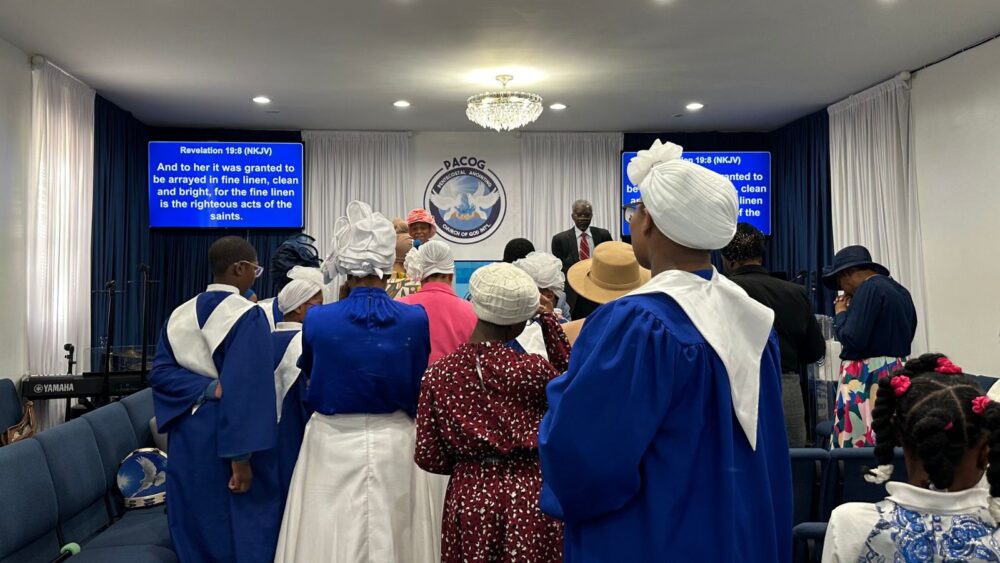
NEW YORK — The small sanctuary of the Pentecostal Anointing Church of God, located at 3112 Tilden Ave. in Brooklyn, was thunderous on Sunday with the sounds of no more than 30 worshipers clapping and shouting “hallelujah” as the congregational leader spoke.
All across the space, decorated in blue and white colors, Bibles were open. Children, who accounted for most of the small church community, pulled out composition notebooks to record the lesson God would teach them through the congregational leader, known to them as Mommy.
Moments before, at the beginning of Mommy’s teaching, the worshipers stood and read chapter 19 in the Book of Revelation aloud together.
“Revelation 19 is encouraging to us,” said Mommy. “The Lord is encouraging someone today.”
“Amen,” shouted the congregation in agreement.
In Nigerian Pentecostal tradition, church teachings are highly interactive, and a back and forth exchange between the preacher and the congregation is welcomed. At Pentecostal Anointing Church of God, it’s common for worshipers to burst into song multiple times throughout the teaching period.
Mommy re-read verse seven in Revelation 19 out loud to the crowd, “Let us rejoice and be glad and give him glory! For the wedding of the Lamb has come, and his bride has made herself ready.”
For Christians, the word “Lamb” is used throughout the Bible as a metaphor for Jesus Christ, and the word “bride” often represents the Church, or anyone who has put their faith in Jesus.
“American culture makes it very easy to get married,” Mommy said with a chuckle. “In Africa, where we are from, there is a thing called ‘bride price.’”
Mommy described a prominent tradition in West African tribal societies where the groom or groom’s family pays a sum of money to the bride or the bride’s family before the official wedding ceremony. She then spoke about the other things involved in addition to money, including yams, cakes, smoked fish and intricately designed outfits.
As Mommy spoke, her inflection emphasized her passion, ranging from a conversational tone to a holler. Members of the congregation laughed joyfully as they contemplated the difference in cultural traditions.
Then, Mommy’s facial expression grew serious as she drew a parallel between the bride price tradition to the atonement of Jesus Christ.
Christian doctrine teaches that it was Jesus who suffered the ultimate penalty in order to wipe clean the consequences of Sin for all mankind, allowing them to be reconciled to God.
“Did you see what Jesus did for us?” Mommy asked the congregation. “You don’t need to pay for marriage; you don’t need to pay for cake for marriage with God.”
Through giving his blood, Jesus himself paid for each individual to be his bride, said Mommy.
“If you have not put value to what Jesus did, please, I am encouraging you today,” said Mommy.
For the third time and final time, the congregation broke out into song. “Jesus paid it all. All to him I owe,” they sang exuberantly as Mommy’s teaching drew to a close.
